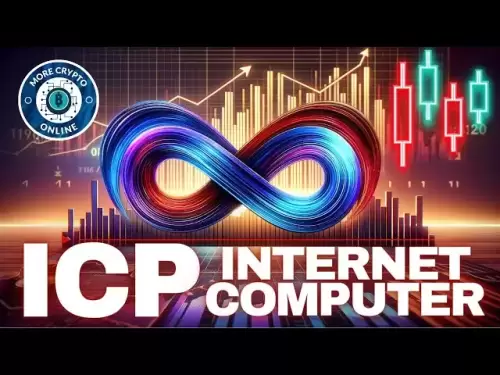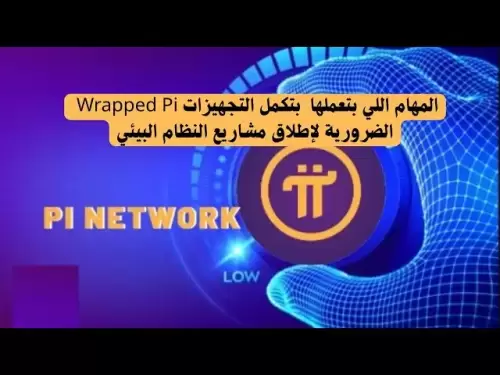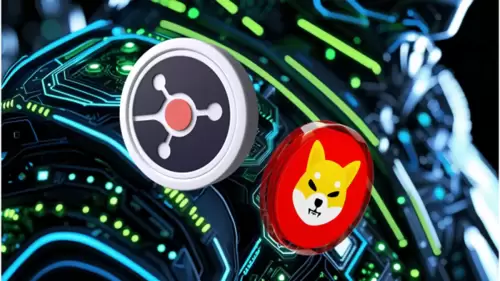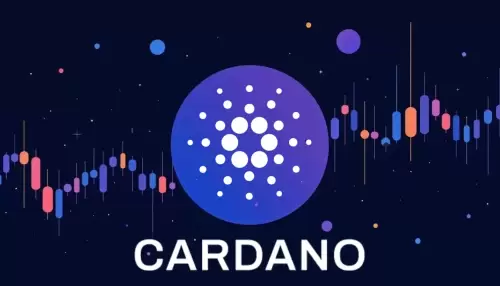 |
|
 |
|
 |
|
 |
|
 |
|
 |
|
 |
|
 |
|
 |
|
 |
|
 |
|
 |
|
 |
|
 |
|
 |
|
Cryptocurrency News Articles
Coinbase, Stablecoins, and Commerce Platforms: A New Era for Digital Payments
Jun 19, 2025 at 01:34 am
Coinbase is leading the charge in integrating stablecoins into commerce platforms, offering merchants a seamless way to accept digital payments.

The intersection of Coinbase, stablecoins, and commerce platforms is creating a tidal wave of change in how businesses handle digital payments. Let's dive into what's happening and why it matters.
Coinbase Payments: A Stablecoin Revolution for Merchants
Coinbase has recently launched Coinbase Payments, a game-changing stablecoin payment infrastructure designed specifically for commerce systems. This allows merchants to process USDC payments instantly, 24/7, across the globe. It's secure and, crucially, simplifies the often-complex world of blockchain.
With over half of Fortune 500 companies dabbling in blockchain and a third of small businesses embracing cryptocurrency, the demand for accessible stablecoin payments is soaring. Coinbase Payments addresses this need by providing a comprehensive payment stack tailored for large-scale commerce applications.
The integration with Shopify is already empowering millions of merchants to accept USDC payments effortlessly. And now, Coinbase is extending these capabilities to any platform serving the merchant sector. Pretty neat, huh?
JPMD: JPMorgan's Deposit Token on Coinbase's Base
In an interesting twist, JPMorgan Chase is piloting a new digital currency called JPMD in partnership with Coinbase. But here's the kicker: it's not a stablecoin. Instead, JPMD is a deposit token – a digital representation of a bank deposit managed with blockchain technology.
JPMD will be used to settle transfers around the clock and facilitate cross-border business-to-business payments on Base, Coinbase's Ethereum-based blockchain. This collaboration aims to bring institutional money into the global economy.
Why a deposit token instead of a stablecoin? JPMorgan believes deposit tokens are better suited for institutional clients, as they're issued by a licensed bank and integrate seamlessly into existing financial systems. They offer the same liquidity frameworks as traditional banks, providing financial certainty.
The Rise of Bitcoin-Backed Stablecoins
While USDC and deposit tokens are gaining traction, there's another player entering the field: Bitcoin-backed stablecoins. Elastos, for example, has launched BTCD, a stablecoin fully backed by Bitcoin.
This approach aims to leverage the security of the Bitcoin network and its vast reserves to fund decentralized activity. BTCD maintains its stability through overcollateralization, ensuring it remains pegged to the dollar.
The Future of Commerce Platforms and Digital Payments
Coinbase's foray into stablecoin payments, JPMorgan's deposit token, and the emergence of Bitcoin-backed stablecoins all point to a significant shift in the digital payments landscape. It's clear that stablecoins and blockchain technology are becoming increasingly integrated into commerce platforms, offering merchants and institutions alike new ways to transact and manage their finances.
Final Thoughts
It's an exciting time to be watching these developments unfold. With Coinbase leading the charge and other major players joining the fray, the future of digital payments is looking brighter – and more stable – than ever before. Who knows, maybe one day we'll all be paying for our morning coffee with stablecoins. Now wouldn't that be something?
Disclaimer:info@kdj.com
The information provided is not trading advice. kdj.com does not assume any responsibility for any investments made based on the information provided in this article. Cryptocurrencies are highly volatile and it is highly recommended that you invest with caution after thorough research!
If you believe that the content used on this website infringes your copyright, please contact us immediately (info@kdj.com) and we will delete it promptly.





























































